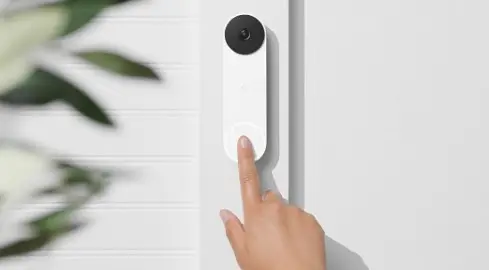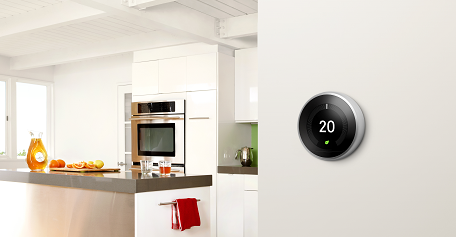Smart Home FAQs
How does smart home technology work?
The term ‘smart home’ refers to a number of key home systems, appliances, and devices that are all connected and can be easily controlled through one central point - such as a smartphone or smart hub.
They use your home WiFi to communicate with each other and with you - meaning you can remotely control your home’s heating and lighting, as well as check on your doorbell and security cameras from anywhere in the world.
What smart home devices are available?
‘Smart home technology’ encompasses an increasingly wide array of products. Virtually any household system or appliance now has a ‘smart’ equivalent that can be integrated into a smart home system, saving users time and money with smart features and automation.
The most popular smart home devices include:
- Smart home hubs / smart speakers
- Smart thermostats
- Smart lighting
- Smart doorbells
- Smart security cameras and sensors
- Smart smoke alarms
- Smart heating controls

Which smart home assistant is best?
There are a few smart home assistants available to choose from - each with their own benefits and drawbacks. A ‘smart assistant’ is the software installed in phones, tablets, and smart hubs that can communicate with connected smart devices to perform tasks and make life easier for users.
The main things to look out for when deciding on a smart home assistant are existingproduct compatibility, cutting edge home technology, and smart money-saving features.
Google Assistant, Amazon’s Alexa, and Apple’s Siri are all viable smart assistants, and the one you choose will depend on the smartphone or smart hub you purchase.
Does smart home technology increase home value?
Smart home technology does increase home value, as smart home tech and home automation is in very high demand. More and more people want smart home functionality in their next house to make life easier, cheaper, and safer in the long term. Because of this, it’s easier to sell homes with integrated smart technology.
A licensed estate agent can provide more detailed information around how much value smart tech can add.
Do smart homes save money?
Smart home devices can help you save money in the following ways:
- Lower heating bills - smart thermostats, such as the Nest Learning Thermostat, help keep your home heated as optimally and efficiently as possible by learning your preferences automatically. They can also detect when you’ve left each room, meaning you’re only heating the parts of the house you actually use.
- Save energy - all smart home devices can be controlled remotely, no matter where you are. Left the lights on? Simply open the app and turn them off from anywhere in the world. What’s more, smart home devices can be scheduled to help keep energy usage in check.

Are smart home devices complicated to use?
Smart home devices are not complicated to use, however certain smart devices may require some DIY knowhow to implement and set up. For example, smart thermostats may require an electrical engineer to fit if you’re not confident doing it yourself.
Once installed, smart home devices are relatively easy to integrate into a smart home system. Once integrated, they are incredibly simple to control via a smart home, smart hub, or with voice commands.
Are smart home security systems safe?
Smart home security systems, such as smart security cameras and smart doorbells, are unquestionably safer than traditional alarm systems.
They allow homeowners to view and record live footage of their homes, speak to visitors, and get alerted when motion sensors are triggered - no matter where they are in the world. This is a huge step forward in home safety, and can help law enforcement catch any would-be intruders far quicker than traditional home security devices.
Can smart home devices be hacked?
Any internet-enabled device can be hacked, but with proper security in place, this is incredibly unlikely. Simply put, if someone cannot hack into your WiFi, they cannot hack into your smart device network.
Advanced security measures such as these make smart home devices incredibly difficult to hack into, giving users peace of mind regarding their privacy.
Looking for more information about building the perfect smart home? Click here to view our smart home buying guide. Alternatively, click here to browse our full range of smart home devices.
Have any further questions? Get in touch with our dedicated support team by clicking here.



